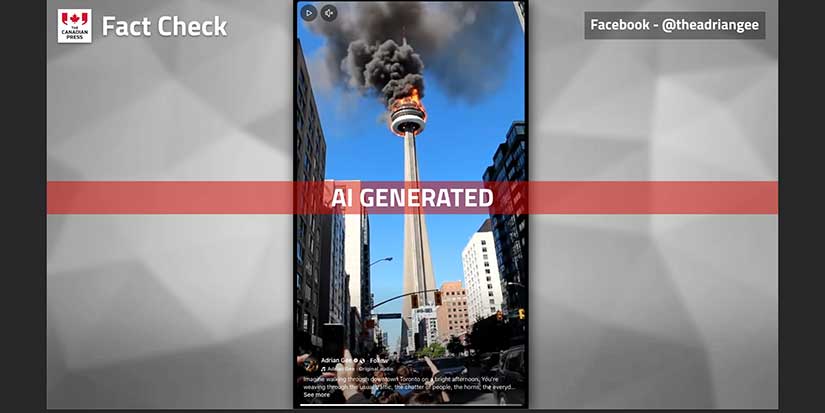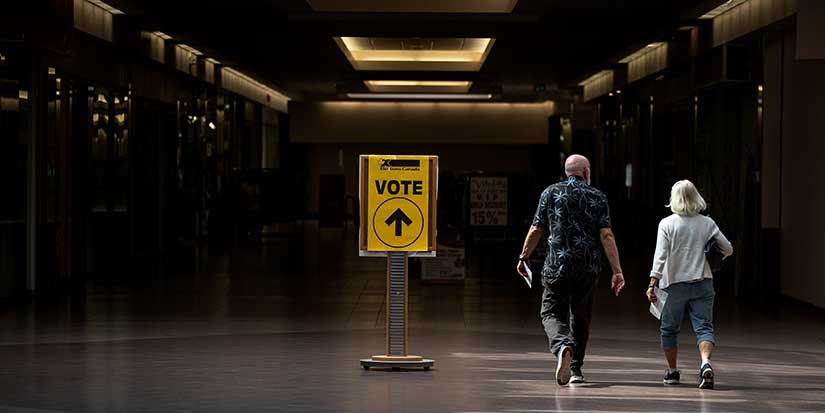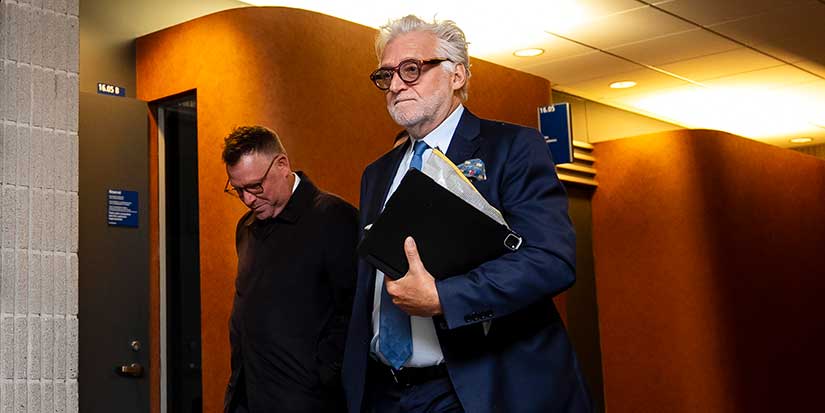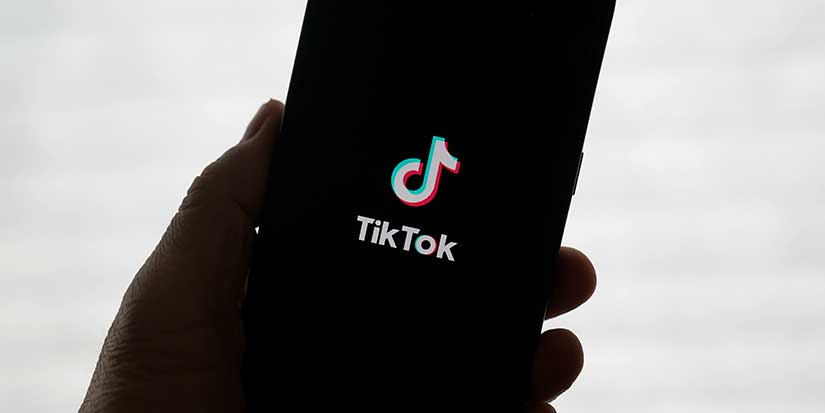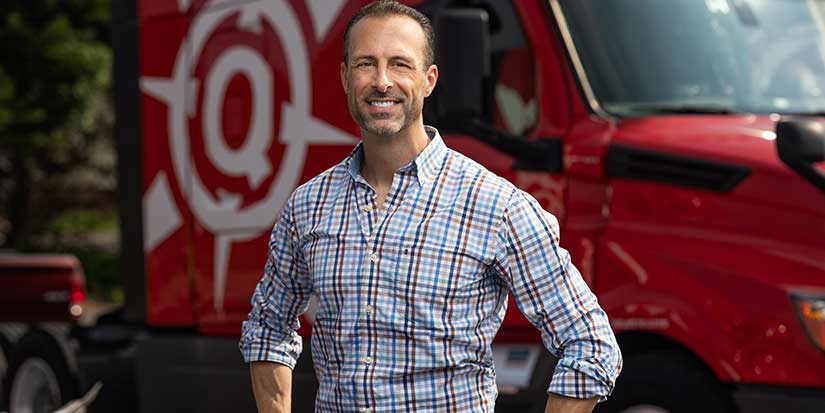Latest News
Post-secondary institutions preparing for unusual fall semester with new guidelines

By Hannah Scott, Local Journalism Initiative reporter
Published 12:45 PDT, Tue September 1, 2020
—
Post-secondary students are also gearing up for their own back-to-school season, but the norm of waiting in line at the bookstore and sitting in large lecture halls will have to wait. While the majority of instruction will take place online, schools have also released individual guidelines for limited in-person classes that follow provincial health regulations.
University of British Columbia
More than 60,000 students learn at UBC across two campuses. More than 3,000 courses will be offered online this fall, but some courses like labs will be held in-person with physical distancing and other health guidelines followed.
“We have a number of platforms that will allow students in larger classes to break out with teaching assistants and also break out with one another to get information from their peers and also have discussions about course material,” says Matthew Ramsey, director of university affairs with UBC media relations.
Some online courses will be offered live and others will be pre-recorded to accommodate students in different time zones. Alternative forms of assessment like projects will be used to eliminate the need for in-person examinations.
“Self-isolation spots are available to students who might be coming to live in the fall,” says Ramsey of UBC’s residence offerings.
Kwantlen Polytechnic University
With five Lower Mainland campuses, including one in Richmond, Kwantlen Polytechnic University hosts 20,000 students each year. This year they anticipate around 95 per cent of their classes will happen online.
Online classes will range in delivery formats from fully live (synchronous) to fully pre-recorded (asynchronous) as well as some that will use a combination of both formats. Classes that require hands-on “experiential components” will take place in-person with physical distancing guidelines in place. These include trades, nursing, horticulture, design, and some science labs.
As part of the transition to online delivery, faculty have been introduced to different kinds of assessment rather than the traditional invigilated exam. Alternative assessment techniques that cover a variety of assessment types are being encouraged.
In addition to regular cleaning of high-touch areas and shared equipment, each department must also submit a health plan so cleaning staff can ensure adequate cleaning is taking place.
Simon Fraser University
Simon Fraser University has three campuses and hosts about 35,000 students. Most fall classes will be delivered remotely, but in-person activities will be allowed where necessary including lab-based courses, studio or theatre access, field trips and some graduate student classes.
Most online courses will not take place live in order to be inclusive of students in different time zones. People who must return to campus for learning will follow a safety plan specific to their area, which will include physical distancing, enhanced cleaning, and other factors.
Residences will still be open, but with increased cleaning and other protocols. Self-isolation for students arriving from outside Canada.
Langara College
Langara serves around 22,000 students at its Vancouver campus. Most courses will be delivered online, except for those that must be delivered in-person to meet learning outcomes. The spring semester, which begins in January, will continue in the same way as the fall semester.
Some online classes will have scheduled virtual meetings, and others will be structured so that coursework can be done at any time. Others will have a mixture of the two. On-campus courses will be delivered fully on-campus, hybrid with online learning, or fully offsite such as practicums or other work experience.
Increased cleaning will be implemented on campus for high-touch surfaces. No-touch handles and sneeze guards will be installed where necessary.must take place off-campus. Residents who test positive for COVID-19 will be moved to a separate self-isolation area.
Trinity Western University
Trinity Western University has four campuses, including one in Richmond, and about 4,000 students. They are offering fall courses primarily online as well as a number of new virtual programs to brig students together.
First-year cohorts of 15 students will take their core courses together and receive mentoring and support from faculty and staff. “TWU Access Chapters” are communities of 10 to 25 students who share the same time zone, who can join together for support and connection.
Some “experiential” courses will be taught face-to-face if health and safety protocols allow. The university is also offering virtual chapel events three times a week, plus an ongoing podcast series.
Trinity Western’s Langley campus has student residence that will be available via prioritized placement. International students arriving can do their mandatory 14-day quarantine on campus if necessary. Students who are unable to find on-campus housing can seek help from a centralized Facebook group that connects them with families or alumni with space in their homes, or through a homestay process.
British Columbia Institute of Technology
The British Columbia Institute of Technology has five campuses including one in Richmond, and enrolls nearly 50,000 students each year. Fall courses will be delivered either online or in a blended format, and on-campus learners must follow protocols.
BCIT has also introduced a mandatory 30-minute online course for students, and a separate course for faculty and staff. The courses provide information on how to protect your health and reduce the risk of spreading COVID-19 while on campus.
As of late August, everyone visiting indoor common areas on-campus is strongly recommended to wear a non-medical mask. Students living in housing must abide by new guidelines, and occupancy level has decreased to allow for physical distancing. Students arriving from outside Canada must self-isolate off-campus.
University of Victoria
The University of Victoria hosts around 22,000 students annually and will offer courses predominantly online this fall. However, some “experiential learning programs” will be offered on-campus, as well as some graduate programs.
“This translates to an estimated 1,700 undergraduate and 1,800 graduate students taking courses in person and on campus this fall,” says president Jamie Cassels.
Orientation programs for new students will be offered online as well, and on-campus research is slowly restarting—although those who can work from home are encouraged to continue to do so. For the spring semester, UVic says it is hoping more people can return to campus but has not yet made a decision.
In addition to general cleaning and disinfection, high-touch surfaces are cleaned and disinfected at least twice a day. Residences will be open this fall, but likely with fewer first-years living in residence because most first- and second-year classes are running online. There is a priority lottery system available for first-year students, but international students who wish to live in housing must self-isolate for 14 days off-campus.
Douglas College
Douglas College enrolls around 25,000 students per year across two campuses. While campuses are open, many courses will take place online or in a hybrid format.
Public touch points and facilities are cleaned several times each day in on-campus spaces. Physical barriers will be installed where physical distancing is not possible, and anyone on campus must self-assess for COVID-19 symptoms daily. Anyone entering campus buildings is recommended to wear a non-medical face covering.













